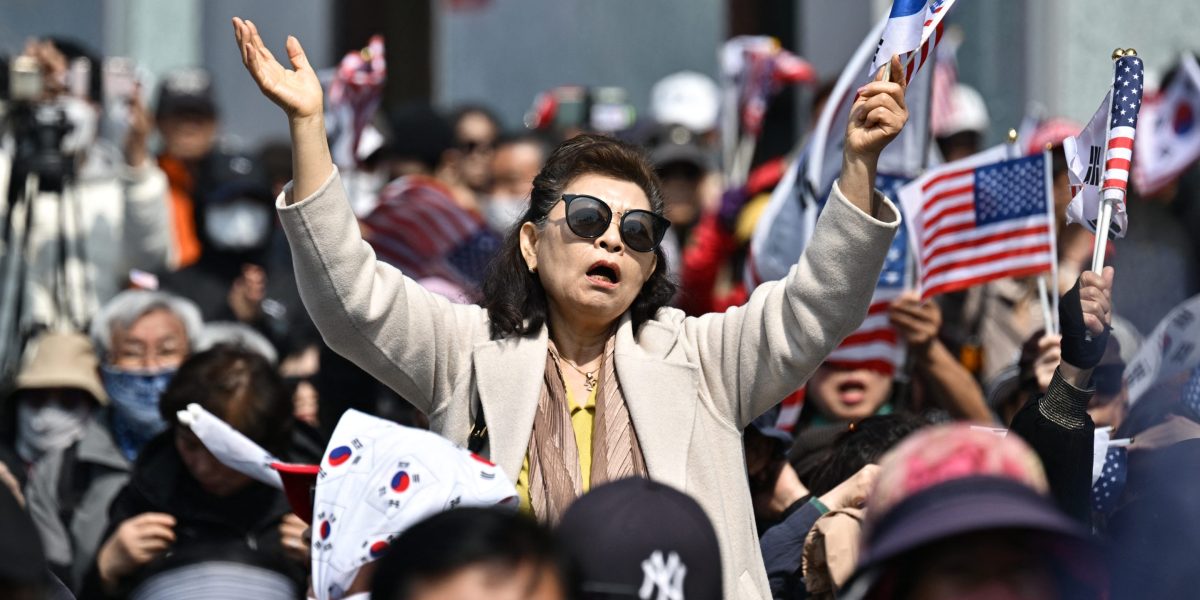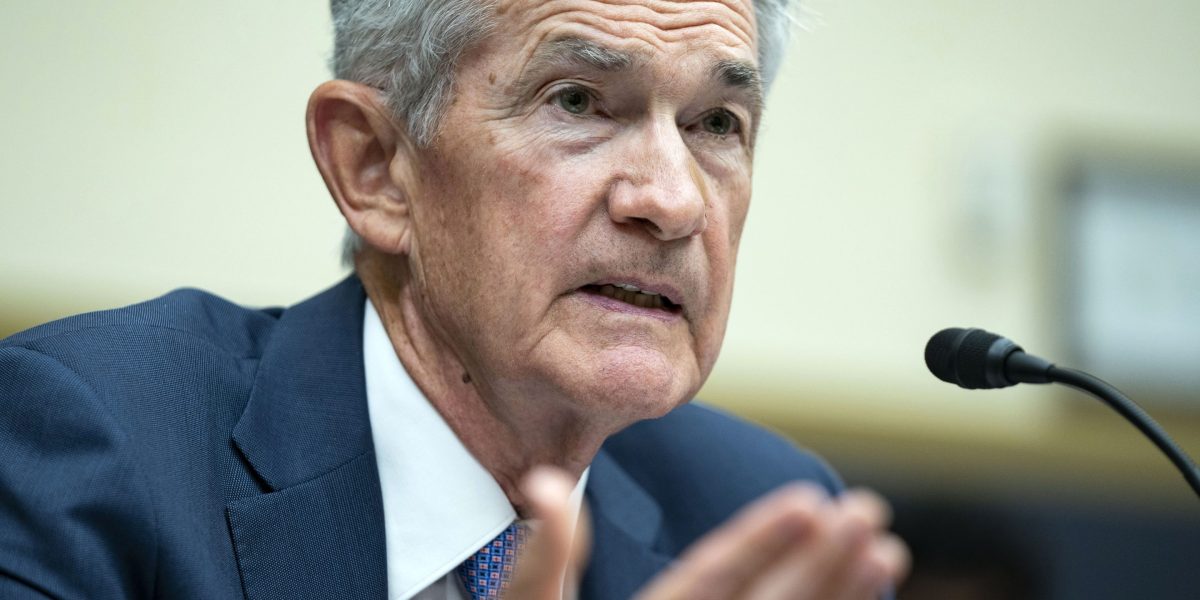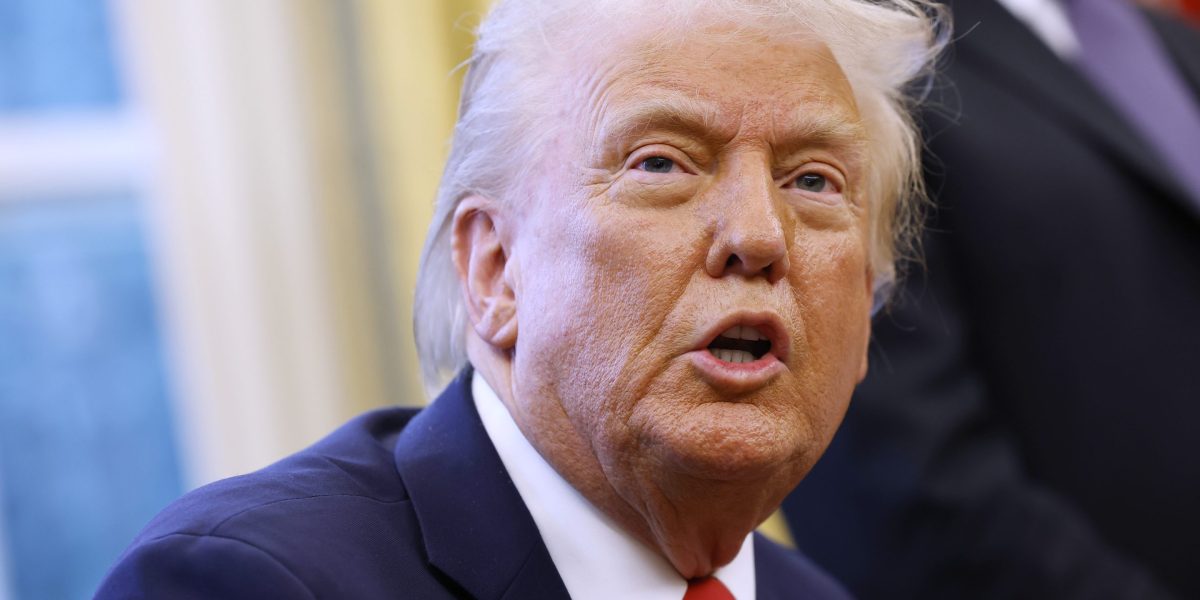U.S. stocks tumbled to one of their worst days of the year after the Federal Reserve hinted Wednesday it may deliver fewer shots of adrenaline for the U.S. economy in 2025 than earlier thought.
The S&P 500 fell 2.9%, just shy of its biggest loss for the year, to pull further from its all-time high set a couple weeks ago. The Dow Jones Industrial Average lost 1,123 points, or 2.6%, and the Nasdaq composite dropped 3.6%.
The Fed said Wednesday it’s cutting its main interest rate for a third time this year, continuing the sharp turnaround begun in September when it started lowering rates from a two-decade high to support the job market. Wall Street loves easier interest rates, but that cut was already widely expected.
The bigger question centers on how much more the Fed will cut next year. A lot is riding on it, particularly after expectations for a series of cuts in 2025 helped the U.S. stock market set an all-time high 57 times so far in 2024.
Fed officials released projections on Wednesday showing the median expectation among them is for two more cuts to the federal funds rate in 2025, or half a percentage point’s worth. That’s down from the four cuts expected just three months ago.
“We are in a new phase of the process,” Fed Chair Jerome Powell said. The central bank has already quickly eased its main interest rate by a full percentage point to a range of 4.25% to 4.50% since September.
Asked why Fed officials are looking to slow their cuts, Powell pointed to how the job market looks to be performing well overall and how recent inflation readings have picked up. He also cited uncertainties that will require policy makers to react to upcoming, to-be-determined changes in the economy.
While lower rates can goose the economy by making it cheaper to borrow and boosting prices for investments, they can also offer more fuel for inflation.
Powell said some Fed officials, but not all, are also already trying to incorporate uncertainties inherent in a new administration coming into the White House. Worries are rising on Wall Street that President-elect Donald Trump’s preference for tariffs and other policies could further juice inflation, along with economic growth.
“When the path is uncertain, you go a little slower,” Powell said. It’s “not unlike driving on a foggy night or walking into a dark room full of furniture. You just slow down.”
One official, Cleveland Fed President Beth Hammack, thought the central bank should not have even cut rates this time around. She was the lone vote against Wednesday’s rate cut.
The reduced expectations for 2025 rate cuts sent Treasury yields rising in the bond market, squeezing the stock market.
The yield on the 10-year Treasury rose to 4.51% from 4.40% late Tuesday, which is a notable move for the bond market. The two-year yield, which more closely tracks expectations for Fed action, climbed to 4.35% from 4.25%.
On Wall Street, stocks of companies that can feel the most pressure from higher interest rates fell to some of the worst losses.
Stocks of smaller companies did particularly poorly, for example. Many need to borrow to fuel their growth, meaning they can feel more pain when having to pay higher interest rates for loans. The Russell 2000 index of small-cap stocks tumbled 4.4%.
Elsewhere on Wall Street, General Mills dropped 3.1% despite reporting a stronger profit for the latest quarter than expected. The maker of Progresso soups and Cheerios said it will increase its investments in brands to help them grow, which pushed it to cut its forecast for profit this fiscal year.
Nvidia, the superstar stock responsible for a chunk of Wall Street’s rally to records in recent years, fell 1.1% to extend its weekslong funk. It has dropped more than 13% from its record set last month and fallen in nine of the last 10 days as its big momentum slows.
On the winning end of Wall Street, Jabil jumped 7.3% to help lead the market after reporting stronger profit and revenue for the latest quarter than analysts expected. The electronics company also raised its forecast for revenue for its full fiscal year.
All told, the S&P 500 fell 178.45 points to 5,872.16. The Dow Jones Industrial Average dropped 1,123.03 to 42,326.87, and the Nasdaq composite skidded 716.37 to 19,392.69.
In stock markets abroad, London’s FTSE 100 edged up by less than 0.1% after data showed inflation accelerated to 2.6% in November, its highest level in eight months. The Bank of England is also meeting on interest rates this week and will announce its decision on Thursday.
In Japan, where the Bank of Japan will wrap up its own policy meeting on Friday, the Nikkei 225 slipped 0.7%. That was despite a 23.7% jump for Nissan Motor Corp., which said it was in talks on closer collaboration with Honda Motor Co., though no decision had been made on a possible merger. Honda Motor’s stock lost 3%.
Nissan, Honda and Nissan alliance member Mitsubishi Motors Corp. agreed in August to share components for electric vehicles like batteries and to jointly research software for autonomous driving to adapt better to dramatic changes in the auto industry.
This story was originally featured on Fortune.com
Source link


 Entertainment8 years ago
Entertainment8 years ago
 Politics8 years ago
Politics8 years ago
 Entertainment8 years ago
Entertainment8 years ago
 Entertainment8 years ago
Entertainment8 years ago
 Tech8 years ago
Tech8 years ago
 Tech8 years ago
Tech8 years ago
 Tech8 years ago
Tech8 years ago
 Politics8 years ago
Politics8 years ago






